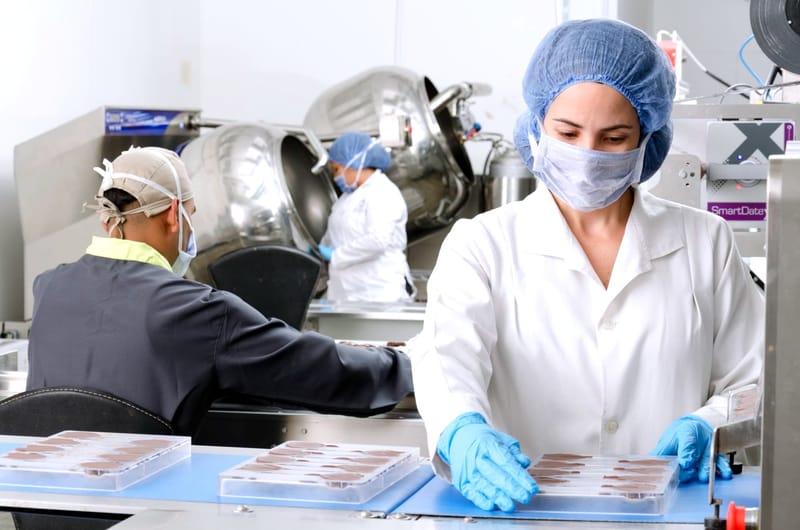Food Safety

Preserving the final flour product's safety for human ingestion is of the utmost importance in food safety. In order to ensure the purity and safety of the flour produced, our position in the food supply chain requires us to adhere to regulations and rigor. Our mill's food safety procedures are described in detail below:
Quality Control and Hygiene Standards Food safety begins with establishing and maintaining strict quality control and hygiene standards throughout the flour milling process. This involves monitoring and controlling various factors.
1. Grain Sourcing:
Quality control starts with the selection of high-quality wheat. We ensure that the grains are free from contaminants, pesticides, and other harmful substances.
2. Cleaning and sorting:
Cleaning equipment and processes are crucial to remove foreign materials, such as stones, sticks, and insects, from the grain. Modern technology, like optical sorting machines, is used to enhance this process.
3. Pest Control:
We implement effective pest control measures to prevent the infestation of stored grains, which can lead to contamination.
4. Moisture Control:
Managing moisture levels is vital to prevent mold growth and spoilage. Temperature and humidity control systems in storage areas are used to maintain grain quality.
5. Milling Process:
Hygiene and safety protocols are rigorously maintained in the milling process. The milling equipment, storage silos, and conveyance systems are cleaned and sanitized regularly to avoid cross-contamination.
6. Testing and Analysis:
Regular testing and analysis of grain and flour samples are conducted to ensure that they meet specific quality and safety standards. These tests may include mycotoxin, microbiological, and chemical analysis.
- Employee Training:
Proper training and education of mill personnel are essential for maintaining food safety standards. Employees are trained to be knowledgeable about best practices, hygiene, and safety procedures. They are also aware of potential hazards in the milling process and how to mitigate them.
- Sanitation and Maintenance:
Regular cleaning and maintenance of equipment, storage areas, and facilities are imperative to prevent the buildup of contaminants or pathogens. Sanitary practices and procedures must be followed diligently.
- Hazard Analysis and Critical Control Points (HACCP):
We implement a HACCP system, which is a systematic approach to identifying, evaluating, and controlling potential hazards in the food production process. It involves establishing critical control points where potential risks can be minimized or eliminated.
- Regulatory Compliance:
We adhere to local, national, and international regulations and standards related to food safety.
- Traceability:
Traceability systems are implemented to track the origin and processing of the grains. In case of a safety concern or product recall, this allows for swift identification and removal of affected products.
- Audits and inspections:
Regular audits and inspections, both internal and external, help us ensure that food safety measures are being followed.
- Product Labeling and Allergen Control:
Proper labeling of flour products is essential to inform consumers of allergens or potential contaminants. We also establish effective allergen control procedures to prevent cross-contamination.
In summary, food safety in our mill involves a comprehensive approach that covers all stages of the milling process. It is a critical responsibility to protect consumers and ensure the quality and safety of the final flour products that are used in various food applications. Strict adherence to standards and regulations, coupled with proactive quality control and hygiene measures, is key to achieving food safety.


